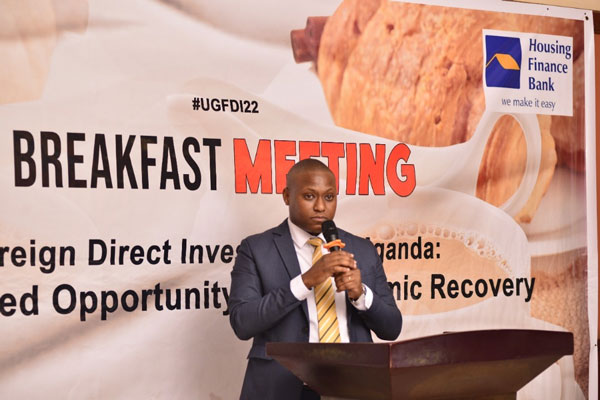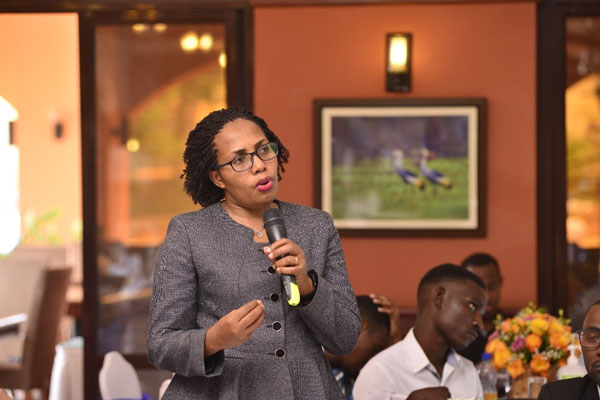
Kampala, Uganda | THE INDEPENDENT | Housing Finance Bank has outlined several initiatives aimed at encouraging foreign direct investment from Ugandans living abroad, while still improving the livelihoods of the people at home.
Peace K. Ayebazibwe, the Executive Director of Housing Finance Bank shared the bank’s vision on Thursday at a breakfast meeting at Serena Hotel, Kigo under the theme “Foreign Direct Investment in Uganda: An Untapped Opportunity for Economic Recovery.”
“We have simplified the process of investing in treasury bills and bonds as well as real estate for customers in the diaspora. These are just a few of the areas where we support our customers. Additionally, we have built over 500 houses for people who are working as Boda Boda riders and taxi drivers with our Zimba Mpola Mpola Incremental loans. We launched this product at one of the homes of the Boda riders,” she said.

The meeting, sponsored by the bank, was held in collaboration with the Parliamentary Forum on Labor, Decent Employment, and Productivity alongside the Bank of Uganda. It aimed at identifying untapped opportunities for the Ugandan economy to recover through foreign direct investment.
“Today, we are discussing our potential and the opportunities that we can exploit. We know that from foreign direct investment, we can push our country for the next decade,” said Laban Musinguzi the National Coordinator for Parliamentary Forum on Labor, Decent Employment, and Productivity
Labor export, government securities, real estate, and a conducive investment environment were among the critical points raised to encourage Ugandans abroad to invest back home.
Speaking at the event, Arnold Bagubwagye, Director Financial Market Bank of Uganda said “We propose that we need to attract the diaspora to invest in Uganda. We need to set up a task force to package these proposals nicely and carry out sensitization informing people that there is a framework in place.”
The event comes at a time when the country is experiencing inflation and high fuel prices whose impact is affecting the majority of Ugandans, especially those still living under the poverty line.
 The Independent Uganda: You get the Truth we Pay the Price
The Independent Uganda: You get the Truth we Pay the Price





